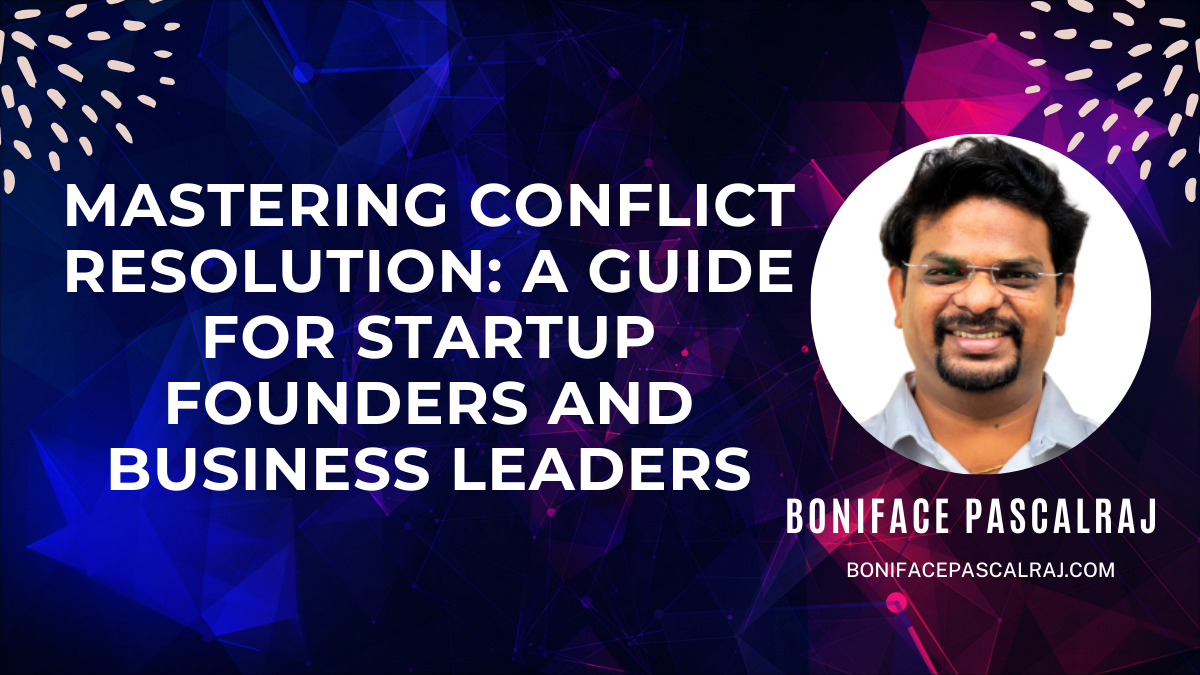As a business head, leading businesses and mentoring startups, I have found myself in the role of a mediator, resolving conflicts among peers, colleagues, and stakeholders. This role, which began during my undergraduate days when I was affectionately nicknamed “Panchayat” (a term for a mediator or leader of a council), has extended into my professional career. I have come to realize that conflict resolution is a crucial skill for any leader, and I would like to share some insights and strategies that I’ve found successful.
The Role of Ego Management in Conflict Resolution
One of the key lessons I have learned through my experiences is the importance of ego management in conflict resolution. Different personalities require different approaches, and it is essential to handle each situation appropriately. The ability to separate the issue from the individual is crucial to avoid personal biases and ensure a fair and effective conflict resolution process.
Effective Conflict Resolution Strategies
Over the years, I have developed a set of strategies that have proven effective in resolving conflicts. These include:
Active Listening
Understanding all perspectives before forming a judgment is crucial. This involves not just hearing what the other person is saying, but truly understanding their point of view. Active listening fosters mutual respect and understanding, and it is a vital first step in the conflict resolution process.
Empathy
Putting yourself in others’ shoes to understand their feelings and viewpoints is another essential strategy. Empathy allows you to see the situation from the other person’s perspective, which can help you find a resolution that satisfies all parties.
Clear Communication
Articulating thoughts and decisions transparently is key to resolving conflicts. Clear communication ensures that everyone involved understands the situation and the proposed resolution, reducing the chances of further misunderstandings or conflicts.
Negotiation
Finding a middle ground that satisfies all parties is often necessary in conflict resolution. This involves compromise and negotiation, and it requires a willingness to understand and accommodate the needs and interests of all parties involved.
Third-Party Mediation
While I prefer resolving issues directly, involving a neutral third party can be necessary as a last resort. A third-party mediator can provide an objective perspective and help guide the resolution process.
Building Trust and Preventing Conflicts
Guiding the resolution process towards a common goal helps in finding mutually agreeable solutions. Building trust is essential to ensure a fair and effective conflict resolution process. This involves being honest, transparent, and consistent in your actions and decisions. Proactively creating a culture of open communication, clear roles, responsibilities, and team bonding activities can help prevent conflicts. By fostering a positive and collaborative work environment, you can reduce the likelihood of conflicts arising and ensure that when they do occur, they are resolved effectively and amicably.
Conclusion
Conflict resolution is a crucial skill for startup founders and business leaders. By mastering these strategies and fostering a culture of trust and open communication, you can effectively manage conflicts and lead your team towards success. Remember, as a leader, your role extends beyond managing teams – you are a mentor who can guide your team members towards self-management, fostering a culture of trust, commitment, and high performance.



